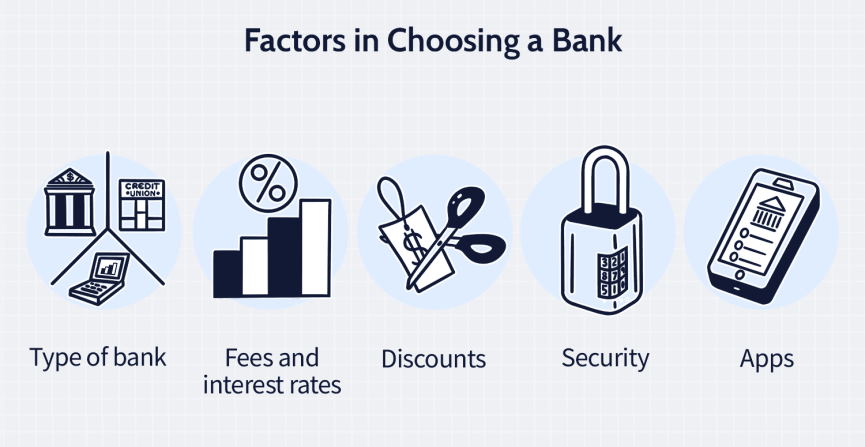
Are you a business owner looking to properly manage your finances? Taking the time to educate yourself on how businesses use banking services can be one of the wisest investments of your time. Doing so will help you gain better financial understanding and provide peace-of-mind that everything is in order. With this knowledge, it will also be easier for you to make decisions as a business owner that are best suited for your needs – such as choosing the right type of bank account. In this blog post, we’ll dive into all different types of small business accounts your company could open – from savings and checking accounts, to merchant processing and online payment solutions – giving you the essentials when considering which ones would work best for your organization.
Types of business bank accounts: which one is right for your business?
Choosing the right business bank account isn’t always straightforward. There are several types of accounts available, each with its own advantages and disadvantages. Here is a brief overview of the different types of business bank accounts to help you decide which one is best for your company:
- Checking Accounts – These are the most common type of business bank account, offering an easy way to manage day-to-day finances such as payroll and bills. They often come with online banking options and overdraft protection.
- Savings Accounts – Savings accounts provide a secure place to store money and earn interest on deposits over time, but typically have limitations on how often funds can be withdrawn or transferred out.
- Money Market Accounts – Money market accounts are similar to savings accounts, but they typically allow more flexibility when it comes to withdrawing funds. These accounts also often offer a higher interest rate than regular savings accounts.

- Certificates of Deposit (CDs) – CDs are deposit accounts with higher minimum balance requirements that generally pay out higher interest rates than other types of bank accounts. They are best for businesses who don’t need access to their cash for longer periods of time and can commit to leaving their money in the account for a set amount of time.
- Business Line of Credit – A business line of credit provides flexible financing options by allowing businesses to borrow up to an approved limit without needing collateral or having to reapply for funds each time.
- Merchant Services Accounts – These accounts are specifically designed for businesses who accept credit cards and process payments electronically. They typically come with features like fraud protection, risk management and payment processing services.
Each type of business bank account has its own benefits and drawbacks, so it’s important to research your options carefully before deciding which one is best for you. It’s also a good idea to speak with the bank or financial institution offering the account directly to ensure that all of your questions are answered in full prior to opening an account. By taking the time to research your options and understand what each type of account offers, you can be sure that you choose the right business bank account for your business.
How to choose the right business bank account
Choosing the right business bank account is an important part of establishing your business. You’ll need the right type of account to manage cash flow, receive payments, and have access to other services.

When selecting a business bank account, there are a few key factors to consider:
- Fees – Different banks charge different fees for their accounts. Choose one that doesn’t charge unnecessary fees or high transaction costs.
- Interest rates – If you plan on keeping large amounts in your account, look for a bank that offers competitive interest rates on balances over a certain amount.
- Online Services – Look for online banking capabilities like remote check deposits and easy bill pay options so you can manage finances from anywhere at any time.
- Business Tools – Many banks offer access to business tools, such as marketing advice, sales tracking and inventory management software. Make sure you choose one that offers the services your business needs.
- Customer Service – Having a good customer service team can be invaluable when it comes to managing your finances. Make sure the bank you choose has a reliable customer service team who can help with any questions or problems quickly and easily.
By taking these factors into consideration when selecting a business bank account, you’ll be able to find one that meets your needs and helps your company succeed.

 New Leaf and Company is a executive coaching organization for small and midsize businesses. For more than 25 years we’ve been helping CEOs, business owners and key executives solve their toughest challenges through a comprehensive approach to success. At the heart of our proven formula is confidential peer advisory groups and executive coaching sessions.
New Leaf and Company is a executive coaching organization for small and midsize businesses. For more than 25 years we’ve been helping CEOs, business owners and key executives solve their toughest challenges through a comprehensive approach to success. At the heart of our proven formula is confidential peer advisory groups and executive coaching sessions. 